The National Farmed Animal Health and Welfare Council is working with government and industry representatives
The catastrophic consequences of a potential foot-and-mouth disease outbreak in Canada terrify the livestock industry. Different sectors have already experienced the impact of foreign animal diseases like BSE, avian influenza, porcine epidemic diarrhea and bovine tuberculosis, said veterinarian Megan Bergman, head of the National Farmed Animal Health and Welfare Council. “We are in a situation […] Read moreStories by Barbara Duckworth
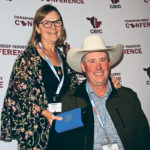
B.C. ranch recognized for conservation efforts
The Clifton family of Keremeos, B.C., receive the national environmental stewardship award for their range practices
Long-term improvements to a family ranch in south-central British Columbia were recognized when the Clifton family received the national environmental stewardship award. Clifton Ranch, which is based on arid land near Keremeos in the Similkameen Valley, received the award at the Canadian Beef Industry Conference in Calgary. The family has been in the area for […] Read moreProducers need disease information
Better information for commodity groups and producers is needed on how to respond when a foreign animal disease emergency occurs. “We want to focus on prevention but the reality is most of this project is geared around response,” said Matt Taylor of the Canadian Animal Health Coalition. The coalition developed a standardized approach for provinces […] Read more
Foot-and-mouth vaccine test studied
If foot-and-mouth disease landed in Canada, there would not be enough vaccine available to protect livestock. “There are seven distinct types of foot-and-mouth virus and they have unique subtypes so a vaccine might not work,” said consultant Robb McNabb, formerly with the Canadian Cattlemen’s Association. International markets would close automatically and the Canadian Food Inspection […] Read more
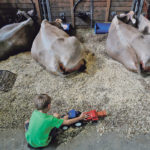
Trade deal likely to go through after delay
The fate of the United States-Canada-Mexico free trade agreement is in the hands of politicians, says the past-president of the National Cattlemen’s Beef Association. Kevin Kester is confident the U.S. will not ratify the agreement before congress takes its summer recess but it will be signed probably before the Christmas break. “Keep in mind whether […] Read more
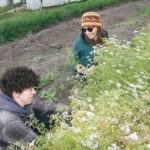
Agricultural education in B.C. lower-mainland blossoms
TSAWWASSEN, B.C. — After years working clerical jobs, Janine van Fram is approaching her dream of becoming a farmer. She completed agriculture studies in 2017 at the Tsawwassen Farm School through Kwantlen Polytechnic University and joined a business incubator program onsite to practice what she learned during the eight-month-long course. Working with two partners on […] Read more
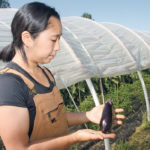
Engineering success with Asian vegetables
SURREY, B.C. — There are more people who want to farm than there is farmland available in the Lower Mainland of British Columbia. Yuko Suda considers herself to be one of the lucky ones because she was able to secure a five year lease on a patch of land at Surrey. Working with the B.C. […] Read more
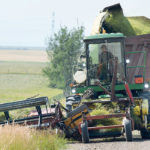
Consumer demand keeps cattle strong
Solid beef demand is turning into a good news story for the North American beef industry, says the senior analyst with Canfax. Some volatility and risks remain but that can be managed, said Brian Perillat, senior market analyst with Canfax at the Canadian beef industry conference held in Calgary Aug. 13-16. The futures markets have […] Read more

Tyson Foods fire in Kansas has wide-reaching effects
A fire at a beef packing plant in Kansas is having a major impact on an industry already working at full capacity. There could be some market impacts with the loss of the Tyson Meats plant at Holcomb that handled 5,500-6,000 head per day. “We have to figure out how can we harvest the 30,000 […] Read more
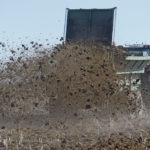
Manure applications not always a good thing
More is not always better when it comes to manure applications. Healthy soil with good levels of organic matter and structure are not likely to benefit by adding more manure, said research scientist Jim Miller of Agriculture Canada at Lethbridge. “If you apply manure to agricultural land that is already productive, those soils usually have […] Read more





